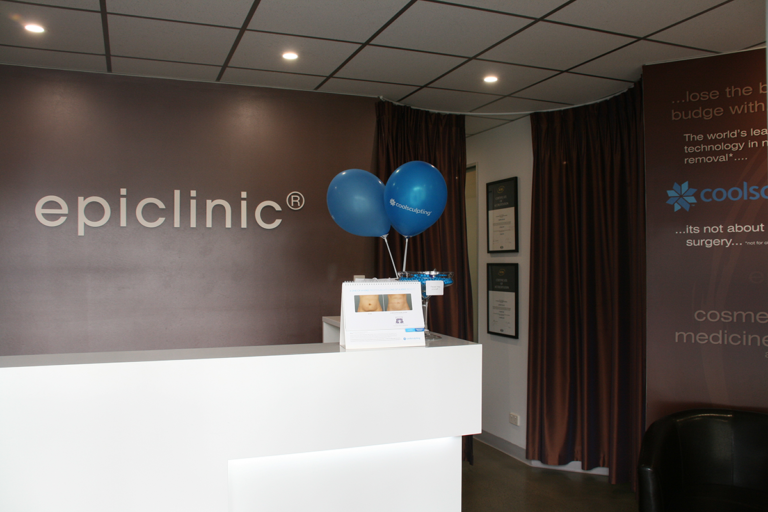





Earn points to spend on treatments, it’s our way
of saying thank you for choosing epiclinic!

Watch a virtual tour of the Epiclinic experience
Step inside Epiclinic for a look at our space and how we work. You’ll see our reception area, consultation rooms and treatment spaces, designed to support patient privacy and comfort. Our registered practitioners discuss individual concerns, medical history and suitability before any treatment plan is recommended. We follow current infection-prevention protocols and schedule time for questions so you can make an informed decision.
These images are shared to illustrate individual experiences following personalised care at epiclinic. They are for general information only and are not a guarantee of outcome. Results, recovery and timeframes vary from person to person. A consultation with a registered health professional is required to assess your concerns, medical history and suitability before any treatment plan is recommended.
Disclaimer: Images are published with patient consent. Photography conditions are kept as consistent as practicable (lighting, angle). No filters are used; minimal cropping only. Specific prescription-only medicines are not advertised.

In our twenties, we may have to deal with annoying issues like acne, acne scars, pigmentation…Read More

These are great years! We’re enjoying our lives with families, friends and career success…Read More

Life doesn’t stop when we hit 65 — in fact, many women find that these are the best years of their lives…Read More